
GLOBAL FORUM OF COMMUNITIES DISCRIMINATED ON WORK AND DESCENT
Global Forum of Communities Discriminated on Work and Descent (GFoD), is a platform to voice the rights and entitlements of the communities discriminated on work and descent in Africa, Asia, Europe, Latin America and North America. GFoD aims for full realization of the Universal Declaration of Human Rights of Communities Discriminated on Work and Descent and ensuring access to sustainable development goals (SDGs). GFoD was founded in 2021 and formally recognizes the core motto of ‘Leave No One Behind’ propounded by “Transforming Our World: The 2030 Agenda for Sustainable Development”, which ensures Planet, Peace, and Prosperity for all, especially those who are marginalized through generations and suffered social prejudices while aspiring for a life of dignity and peace.
GFoD comprises several self-governing CDWD organizations united by a central structure and shared values, vision, and mission. It aims to enhance the opportunities for DWD communities, their representative organizations, and non-governmental and other organizations working on the rights of DWD communities in order to demand with a unified voice their inclusion in all sustainable development-related UN processes. It also recognizes that DWD communities are diverse, with intersecting layers of exclusion, including those based on gender and sexuality. Therefore, it has adopted gender mainstreaming as an integral and ongoing process at the heart of its organizational framework. This entails gender training and capacity building, integrating a gender perspective into research and advocacy, implementing organizational-level policies for gender equality, and promoting gender sensitivity among its employees.
Communities Discriminated on Work and Descent are some of the most excluded, segregated, and marginalized groups at the global, regional and local levels within their social, economic, political, and cultural systems. The consequences of this marginalization are unjust deprivation and systematic exclusion from social relationships and communication, education, health, access to water and sanitation, employment, voting rights, equal access to land and housing, and access to religious institutions in the public sphere. The types of social structures that have evolved and functioning for centuries have inflicted systemic violence on the DWD communities, such as the Haratin in the Sahel; Forgeron in West Africa; Bantu in Sudan; Roma in Europe; Burakumin in Japan; Dalits (formerly known as ‘untouchables’) in South Asia; and Quilombola and Palenque in South America. The global coverage of DWD communities includes Africa, Asia, Europe, and Latin America, with around 270 million people.
GFoD envisions a democratic, inclusive, and just society that is free from all forms of Discrimination based on Work and Descent (DWD) with regard to ensuring gender parity, access to development, justice delivery, environment protection, and disaster mitigation measures. This includes the planning, design, implementation, monitoring, review, and evaluation of sustainable development policies at all levels – national, regional, and international. The immediate overriding objective of GFoD as part of the stakeholder group of CDWD is to secure a UN Declaration affirming the rights of CDWD around the world so as to ensure their empowerment, overall development, and progress.
Our Vision
We envision a society wherein all women and men consider themselves equal and free human beings, practice justice and equity in the sharing of resources, live a democratic and inclusive life that is devoid of all forms of discrimination, and enjoy fellowship, peace and harmony among themselves and with nature.
Our Mission
To work towards the integration and inclusion of the Communities Discriminated on Work and Descent (CDWD) with the larger society at the national, regional, and global levels by ensuring gender parity, access to holistic development, fair justice delivery, sustainable environment protection, and equitable disaster mitigation measures on the basis of the foundational values of self-respect and self-identity, equality and freedom, justice, and equity.
CORE TEAM
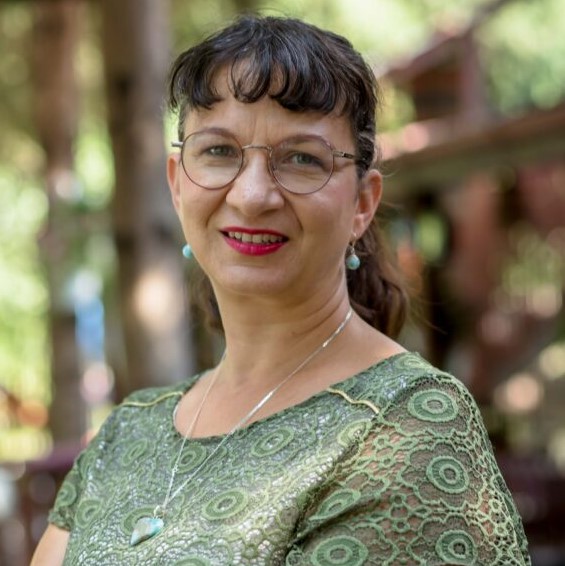
Jamen Gabriela Hrabanova
Jamen Gabriela Hrabanova is a leading Romani human rights activist in Europe, with extensive experience in protection, promotion and advocacy of Roma rights in government and civil society positions on national and European level. She joined ERGO Network in 2011 and has served as director since 2017. For many years, she was working in the civil society sector, engaged either technology consultant for non-profit organizations and as a leader of Roma student association Athinganoi. Later she was employed by the Governmental Office as a Director of the Roma Office for the Council for Roma Minority Affairs in the Czech Republic where she was coordinating strategic and conceptual works related to Roma integration.
As one of the initiators of the Alliance against Antigypsyism and the Global Forum of Communities Discriminated on Work and Descent (GFoD). She is also a coordinator of the EU Roma Policy Coalition, she connects civil society and policy makers on the highest levels, using her expertise in diplomacy, communications and human rights to advance rights for Roma and to empower Roma activists.
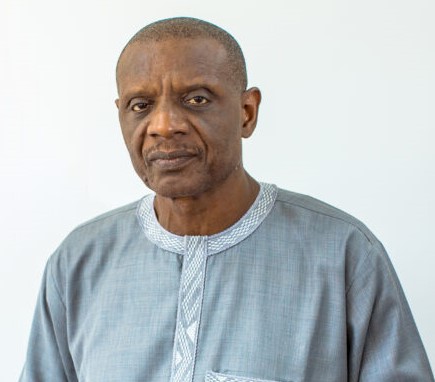
Dr. Ebrima Sall
Dr. Ebrima Sall is the immediate past Executive Secretary of the Council for the Development of Social Science Research in Africa, CODESRIA, Africa’s leading social research council that was ranked top think tank of Sub-Saharan Africa in the 2016 Goto-Global Think Tanks Report of the University of Pennsylvania.
Prior to becoming the Executive Secretary (April 2009 to June 2017), he was a Senior Programme Officer and Head of Research at CODESRIA for five years (2004-2009). He has also held senior positions in other institutions, including as Managing Director of the Center for the Promotion of Village Savings and Credit Associations (VISACA) in BrikamaBa, The Gambia, which was then under the Gambian Ministry of Agriculture (1992-1994); and Senior Research Fellow and Programme Coordinator at the Nordic Africa Institute in Uppsala, Sweden (2001-2004). He taught as an adjunct professor at the political science department of Gaston Berger University, in Saint-Louis, Senegal, from 1996 to 2000.
In 1992, he was promoted to the rank of ‘Maitre de Conferences’ (Associate Professor) in ‘sociology-demography’, by the National Commission of Universities of France.
He holds a ‘Maitrise’ (MA) degree in Economic and Social Administration from the University of Grenoble in France, a Diplome d’Etudes Approfondies (DEA) in the Socio-economics of development, and a doctorate in sociology from University of Paris I-Pantheon-Sorbonne.
He was a post-doctoral fellow of Yale University’s Program in Agrarian Studies in 1997-98, and is currently a Senior Research Fellow of the Center for African Studies, Harvard University.
Ebrima is the (co-)author/editor of several publications on higher education, academic freedom, the social sciences, social movements, citizenship, governance, and post-conflict transitions in Africa. He is a citizen of The Gambia
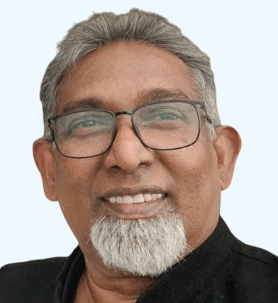
Paul Divakar Namala
N. Paul Divakar is a Human Rights advocate specifically working on the issues of the marginalised communities and for almost 4 decades working on Dalit rights. His expertise includes Economic Rights, Access to Justice, Inclusion in Disasters and Humanitarian crisis.
He is the Convenor of the Global Forum of Communities Discriminated on Work and Descent (GFoD). He is also the Global Co-Chair of Global Call to Action Against Poverty (GCAP). GCAP is a network of over 11,000 civil society organisations (CSOs) organized in 58 National Coalitions and in constituency groups of women, youth and socially-excluded people. GCAP supports people in their struggles for justice and brings individuals and organisations together to challenge the institutions and processes that perpetuate poverty and inequalities. He serves as the Chairperson of the Asia Dalit Rights Forum (ADRF), which works in the South Asia region on inclusion and issues around un-touchability and caste-based discrimination.
His work today involves in bringing together similarly discriminated communities on work and descent from the Dalits in Asia to the Haratine in Mauritania to the Quilombolas in Brazil to Roma in Europe. The communities together form the GFOD. He has also been instrumental in pushing for a constituency of communities discriminated on work and descent and this year (2020) has been successful in realising this through a Stakeholder Group of Communities discriminated on Work and Descent which is now a part of the official Stakeholder group at the HLPF at the UN, NY.
He has been one of the key actors in popularising the sustainable development goals and to bring in the aspect of inclusion in the discourse in the new development paradigm and engaging both at the global level throughout the MDG process and now the SDGs. He has been trying to localise the SDGs in bringing in the SDGs to the grassroots and encourage various constituencies specially the marginalised to monitor and push for effective implementation of the goals and targets in country, regionally and globally.
He is one of the founding members of the National Campaign on Dalit Human Rights (NCDHR). In 2017 he was voted by Outlook magazine as one of the 50 most influential Dalit Leaders in the country. He lead a delegation of over 200 human rights defenders, advocates and professional women, men and youth to the UN World Conference Against Racism in 2001. He has been actively engaging with the communities in strengthening access to justice, gender concerns especially on the intersectionality of Gender and Caste, financial accountability, transparency and participation. His deep interest for the economic empowerment of the Dalits led to initiating several campaigns in India for advocating for equity budgeting from the lens of the marginalised. His other passions involve travelling, reading, movies and exploring the latest technology. But he takes his love for mangoes seriously and can tell you all the names of all the varieties and the time that they are available.
THE SECRETARIATE
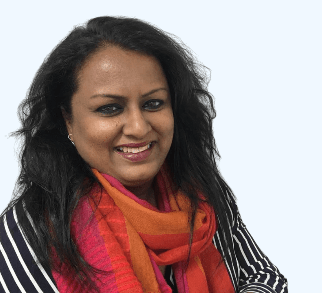
Beena J. Pallical
Beena J Pallical is a Dalit women Leader and currently General Secretary of the Economic and Educational rights wing within National Campaign on Dalit Human Rights (NCDHR). Over the last eleven years she is with the NCDHR working on the Dalit Economic Rights. She has been passionately working towards policy changes within Central and State governments towards the marginalised communities (Dalits & Tribals ) and been demanding that Dalit Women be included in policy formulation.
Her main focus continues to be on Economic Justice and specifically looking at Gender Equity. She has led many campaigns and trained several Dalit & Adivasi Women and men on Budget rights. She also works around targeted budgets, fiscal accountability and governance. Her focus the last 5 years has been on how to enable youth to access their right to education, ensuring that the budgets allocated for them is effectively implemented. She also heads the Asia Dalit Women’s Economic Empowerment Program that works on empowering Dalit women in South Asia (Sri Lanka, Bangladesh, Nepal and India which is part of the Asia Dalit Rights Forum.
She is an expert on Gender issues and looks at the intersectionality of Economic Rights and gender and has written several articles on the importance of looking at governance through the lens of Gender rights particularly Dalit women’s rights. A large part of her work is focused on the UN mechanisms and has worked closely with both OHCHR at Geneva and the HLPF at NY. She has been involved in the sustainable development goals since 2015 and the inclusion of voices of the marginalised and taken this agenda to the High level political forum in NY. She has also been looking at how finances can be better managed to ensure that the SDGs can be achieved specifically from the perspective of the marginalised. She has worked with all the various mechanisms and has represented the Dalit Women’s rights at the UN platforms. She has contributed to the overall work of Dalit Rights in NCDHR and participated in several national and international seminars raising the voice of Dalits and Adivasis and advocating stronger policy measures with effective implementation. She has trained many young women and men in budgets and fiscal accountability. Her other passions include travelling, trying various cuisines, learning different languages and thinks that if she weren’t a Human Rights Activist she would have been a dancer!
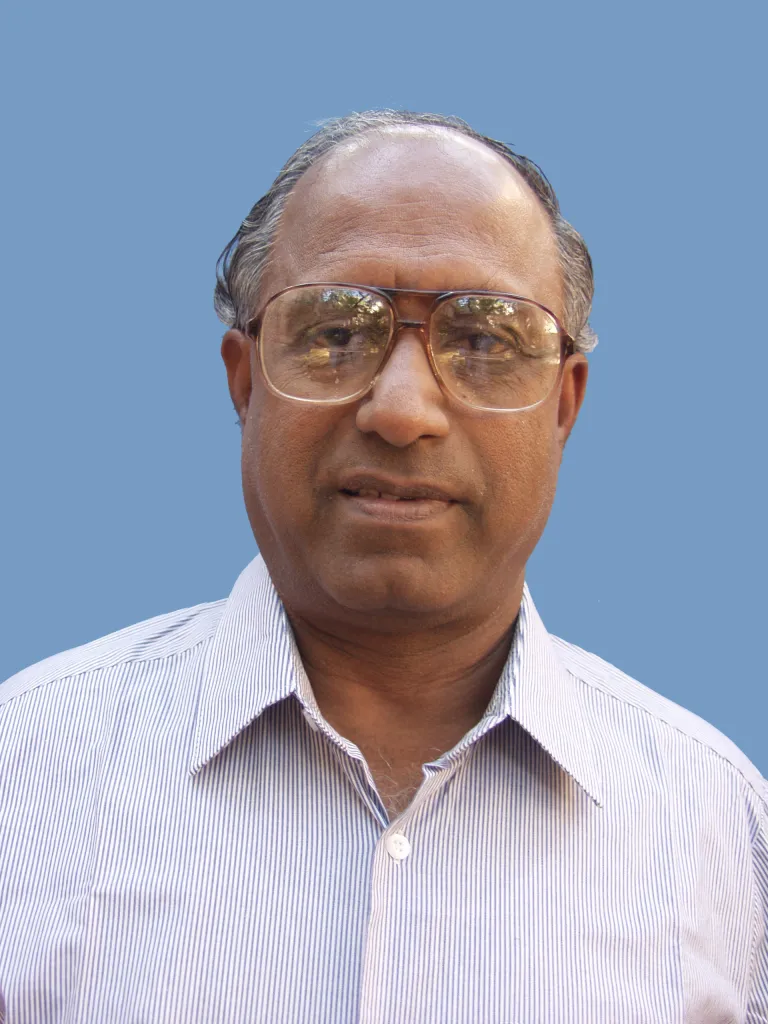
Aloysius Irudayam S. J
Aloysius Irudayam S. J. Holding Master’s Degree in Philosophy and Political Science, he is an experienced grassroots activist and a trainer on social issues. He has co-authored several advocacy publications which have been used for national and international advocacy and lobbying purposes: Black Paper – Promises Broken and Dalits Betrayed (1998), Adivasis Speak Out: Atrocities against Adivasis in Tamil Nadu (2004), Dalits in the World of Globalization (2004), Dalit Women’s Right to Political Participation in Rural Panchayati Raj (2009), Dalit Women Speak Out: Caste, Class and Gender Violence in India (2011).
His commitment to Dalit Rights has led him to, among other forums, UN Treaty Body meetings in Geneva (2001 & 2007), UN World Social Forums in India (2004) and Brazil (2005), etc. Keenly interested in the promotion of human rights culture, he has co-authored human rights education textbooks for school students. Having held several important administrative positions, he is at present the Program Director of the Research, Advocacy and Human Rights Education Unit in IDEAS, Madurai, India. He is currently also the Advisor to GFoD.
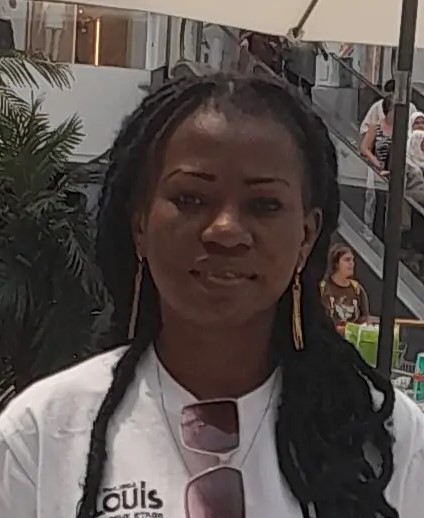
Bisseng Queen Angeline
Bisseng Queen Angeline is the Africa Coordinator for GFOD based in Cameroon, she is a human rights expert and specialist on managing physical and digital security for activists and human rights defenders. She is a consultant and resource person on human rights issues who advocates for the rights and the recognition of the status of Communities Discriminated on Work and Descent (CDWD) especially in West Africa.
Queen holds a degree in Humanitarian Action and a certificate from the University of Georgia in the USA on African Civic Engagement; she also holds a certificate from the University of Basel in Switzerland on documentation and archiving from a perspective of dealing with the past. She is a member of the 2019 class of the Young African Leader program organised by the German Friedrich Ebert Stiftung (FES). She is a member of the 2019 class of the Young African Leader program organised by the German Friedrich Ebert Stiftung (FES). She is an advocate for the rights of CDWD associated with the Global Forum of Communities Discriminated on Work and Descent and has been leading GFoD’s involvement in the African region.
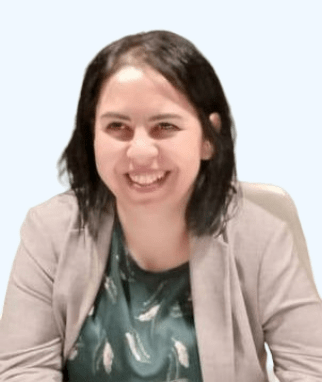
Simona Torotcoi
Simona Torotcoi is a Roma activist from Romania, currently a Roma right expert for the European Roma Grassroots Organization Network. Having previously completed a PhD in Public Policy from the Central European University, and having worked for UNICEF, Simona has a particular interest in education policies for Roma minorities and other disadvantaged groups. She is a founding member of Young Roma Maramures Association in Romania, a youth organization focused on the development of Roma communities. Since 2010 she has been involved in the activities of initiatives of Change, Phiren Amenca, OSCE CPRSI, Roma Education fund, and she has researched issues such as antigypsyism and access to education, employment, civic and political participation.
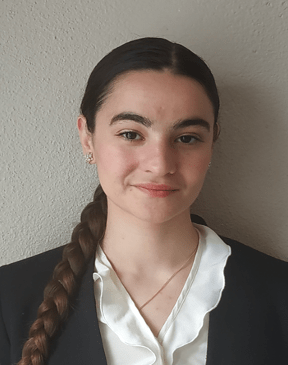
Carla Forneri
Carla is an activist and interpreter based in France working for the recognition and protection of Communities Discriminated on Work and Descent (CDWD). As a specialist in communication, her work focuses on building the necessary alliance between the different CDWD across the world. She manages all interpretation and translation needs for the Global Forum and also supports the secretariat in the administration of the Rights Experts Program. Engaged in elevating the most marginalized voices to advance Agenda 2030, she accompanied in march 2023 the first united delegation of CDWD women at the CSW67. As an Admin and Logistics Officer, she also supported GFoD’s delegations to the High Level Political Forum and General Assembly in the UN Head Quarters in July and September 2023.
Her background includes two Masters Degrees in General Linguistics and in Slavic Studies (Russian language and civilisation). She works to facilitate opening the GFoD to post-soviet spaces such the Caucasus and Central Asian regions where CDWD Roma communities are present.
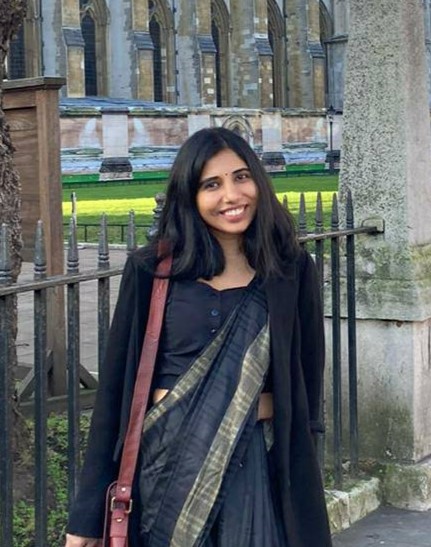
Pranjali Kureel
Pranjali is a Researcher, with demonstrated experience in the development sector and media & publishing. Her work encompasses the intricate intersections of caste and gender, Buddhism, and public policy. She holds a MPhil degree in Modern South Asian Studies from the University of Cambridge, which was supported by the prestigious Commonwealth Masters Scholarship. Her MPhil research focused on Dr. Ambedkar’s engagement with Buddhism. She believes in combining her academic skills and activism to advance the collective pursuit of social justice. Pranjali is also an author with published articles and poetry addressing critical social issues. During her leisure time, she enjoys watching science fiction, writing children’s short stories, and occasionally, even sappy poetry.
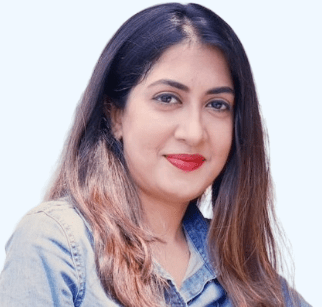
Shallini Sikka
Shallini is an accomplished accounts professional with a track record of successful evolution spanning over 7 years. She has done her masters in commerce and has done certification in Tally ERP & Financial Modelling.
She has worked with different sectors like manufacturing, consulting & development. She has extensive experience in financial planning, budgeting, statutory audit, compliance and donor reporting. She has previously worked Wonder Alu Board Overseas, Thinkthrough Consulting Pvt. Ltd. & STiR Education. Currently, she is working as an Accounts & Admin officer with The Inclusivity Project. She is infused with exemplary work ethics consisting of a goal-driven mentality and team-oriented approach to attain goals. She has been appreciated for high level of efficiency, learning attitude with interpersonal skills and naturally engaging personality. Additionally, she is knowledgeable in MIS reporting and various financial software applications (Tally, SAP B1 etc). Her motivations include learning new things and the challenge of meeting key objectives.
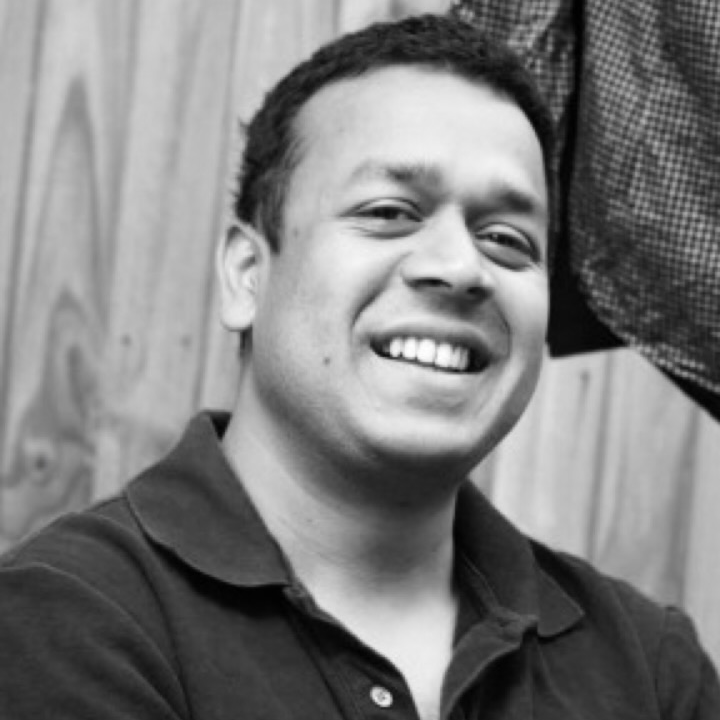
Dinesh Jonnakuty
Dinesh Jonnakuty is an Advocacy and Policy Officer at GFoD and is based in Australia. Dinesh supports GFoD’s global interventions (United Nations) to voice the concerns of Dalits (Asia), Roma, Cinti, Gypsies (Europe), Haratine,Gaboye, Ñeeño (Africa) Quilombola (Brazil) Communities.
Dinesh’s previous experience includes working with Dalit communities in India and Indigenous communities in Australia on improving justice outcomes for Indigenous youth. He is passionate about ensuring community led design in policy development and supporting community aspirations and perspectives to achieve effective policy outcomes. He holds postgraduate degrees in Public Policy and Communications.
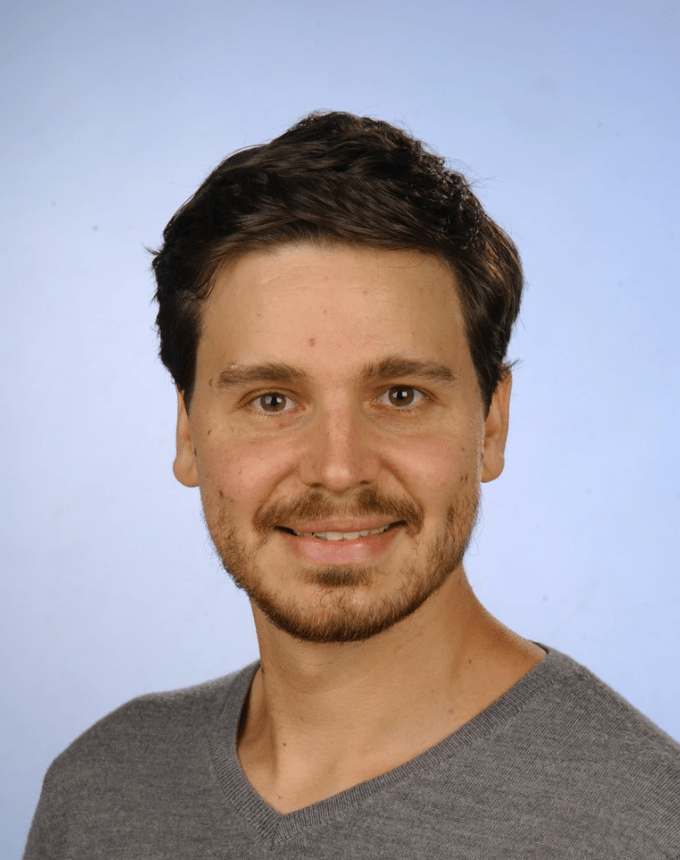
Johannes Butscher
Johannes Butscher is the UN Advocacy Officer with TIP-GFoD since March 2021 based in the Americas. He previously worked in Brussels and Scotland, where he pursued a BA in Economics and Politics. In 2017, he moved to Colombia to study a MA in Peacebuilding and to support local peace projects and organisations such as the CAPAZ Institute.

Dr. Vinayaraj V. K.
Dr. Vinayaraj is the Senior Programme Coordinator with TIP-GFoD. He holds a doctorate in International Politics from the prestigious Jawaharlal Nehru University (JNU) in New Delhi. He has expertise in the field of the development sector for over a decade. He has made significant contributions to programme and project management in the development sector. His journey has been one of dedication and passion, as he has worked to create positive change.
Dr. Vinayaraj’s impressive professional background includes collaborations with renowned organizations such as the Jagori Rural Charitable Trust in Dharamshala, the Centre for Education and Communication, the NASSCOM Foundation, and the Shastri Indo-Canadian Institute in New Delhi. These experiences have allowed him to cultivate a deep understanding of the intricacies involved in managing successful multi-partner projects in diverse environments.
Not only has he excelled in his managerial roles, but he has also shared his knowledge and expertise through consultancy and collaboration with the International Labour Organization (ILO) in Delhi. In addition, he has dedicated time to teaching Political Science at Christ College in Irinjalakuda, Kerala, showcasing his commitment to both practical application and academic pursuits.
His intellectual prowess extends beyond his professional accomplishments. He has played an integral role in the research and publication of books, research articles, essays, and reports, and has published book reviews in national and international journals. Some of his contributions have been quoted by the academic community and fostered meaningful dialogue in his field of expertise.
He participated in the Group Relations Conference (GRC) 2023 organized by Group Relations India (GRI) Mumbai in 2023. He served as one of the core Faculties on Identity and Social Practice for the Master class for the Urban Fellows at India Institute of Human Settlements (IIHS), Bangalore, 2022-23. He has travelled nationally and internationally and attended the United Nations High Level Political Forum (UN HLPF) in New York as a delegate of Major Groups and Other Stakeholders (MGoS) in 2022. He also represented the Social Justice Task Force (SJTF) of The Inclusivity Project (TIP) at the Asia Regional Assembly organized by Global Call to Action Against Poverty (GCAP) Asia in Bangkok in 2022.
Dr. Vinayaraj’s impressive track record, coupled with his unwavering dedication, make him a true force to be reckoned with in the development sector. His ability to envision and implement innovative solutions has the power to transform lives and uplift communities.
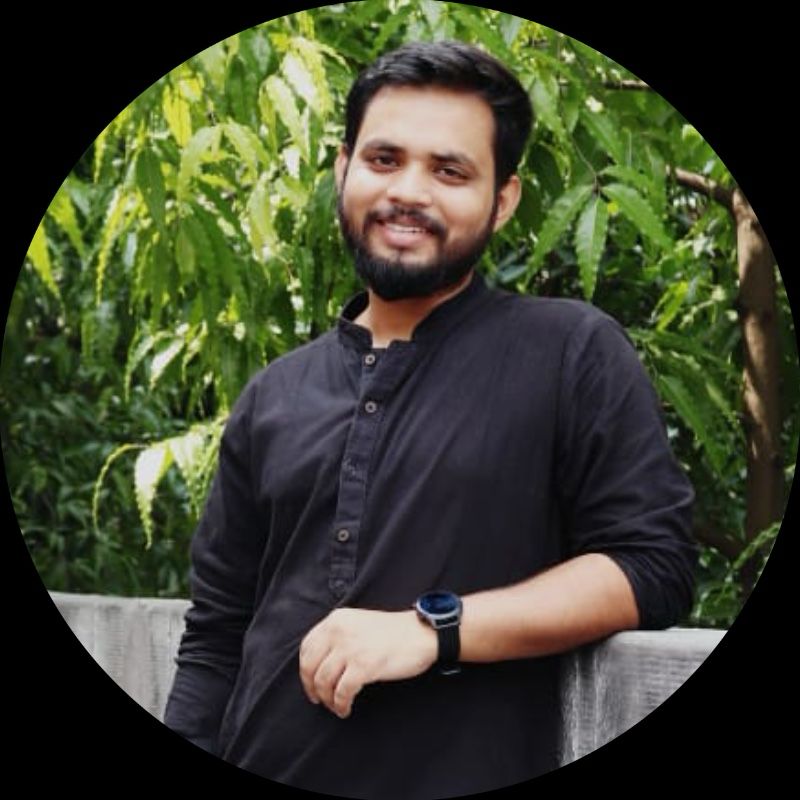
Naveen Gautam
Naveen Gautam is presently working as Senior Legal Researcher with Global Forum for Communities discriminated on Work and Descent. He is a social legal researcher and has been working as a Dalit-Adivasi Rights activist and Social Justice lawyer since past 7 years as he is committed towards advancing the rights of Dalits and Adivasis as well as Constitutional literacy.
With an indomitable spirit and a deep understanding of the socio-legal landscape, Naveen Gautam embarked on a journey to fight for the rights of Dalits and Adivasis across India. Armed with a law degree from a prestigious institution namely Dr. Ram Manohar Lohiya National Law University, Lucknow, he set out to challenge the deep-rooted biases and prejudices that perpetuated their marginalization. He further went on to do Post Graduation in International Human Rights Law from National Law School of India University, Bangalore.
Beyond the courtroom, Naveen Gautam has been actively involved in grassroots movements, community organizing, and policy advocacy. Recognizing the power of collective action, he has played a pivotal role in raising awareness about the challenges faced by Dalits and Adivasis, fostering dialogue between communities, and mobilizing support for transformative social change, especially Youth. Along with Civil and Political Rights of Dalits and Adivasi, Naveen Gautam also holds experience of being trainer on the issues of Child rights ,Gender, rights of minorities as well as rights of Nomadic and DE notified tribes. Parallely he has been extensively working on SDGs. He has also been a guest faculty in colleges and has taken up courses in form of workshop on Human Rights Law.
Hailing from Lucknow with his ancestral house in a small village of Raebareli in Uttar Pradesh , Naveen Gautam witnessed first hand the systemic discrimination and social injustice faced by marginalized communities especially Dalits. This personal experience ignited his passion to bring about meaningful change and to empower those who have long been silenced and oppressed.
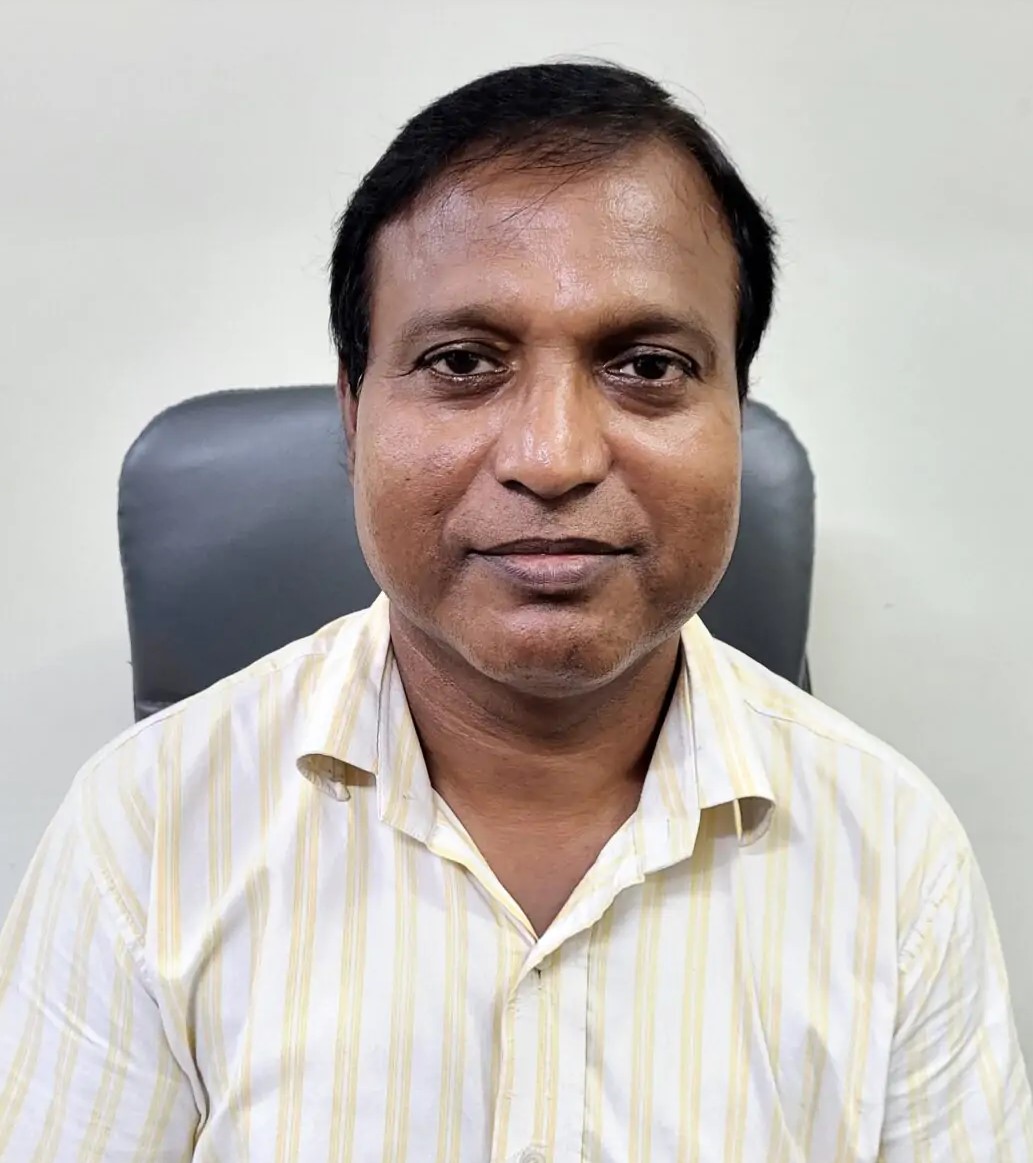
Rakesh Kumar
Mr. Rakesh Kumar works as Office Assistant with a passion for ensuring a well-organized and smooth-running office environment. With a strong work ethic and an eye for detail, he is committed to providing excellent support to the office colleagues. He excels in handling various administrative tasks, including document management, mail sorting, and appointment scheduling, ensuring that the office functions seamlessly. He further ensures that the office space remains clean and tidy, stocking supplies, and ensuring that all office equipment is in working order, creating a comfortable and efficient workspace for everyone.

